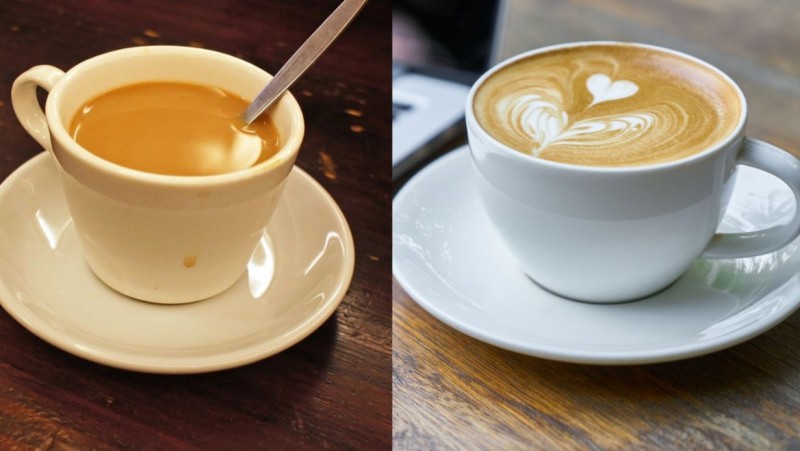
During the auspicious occasion of Navratri, which spans from April 9th to April 17th this year, millions of devotees across India and beyond engage in various religious rituals and observances. One common practice during Navratri is fasting, wherein individuals abstain from certain foods and behaviors as a form of devotion and purification. Among the many questions that arise during this time, one often debated topic is whether it's acceptable to consume tea and coffee while fasting. In this detailed exploration, we will delve into the religious, cultural, and health aspects surrounding the consumption of tea and coffee during Navratri fasting.
Introduction to Navratri and Fasting:
Navratri, meaning "nine nights," is a Hindu festival celebrated with much fervor and devotion. It commemorates the triumph of good over evil and is dedicated to the worship of Goddess Durga and her various incarnations. The festival occurs twice a year, once in the spring (Chaitra Navratri) and again in the autumn (Sharad Navratri). During these nine days, devotees participate in prayer, meditation, and various religious activities.
Fasting during Navratri holds immense significance in Hindu culture. It is believed to cleanse the body and soul, enhance spirituality, and evoke the blessings of the divine. Fasting rules vary among individuals and communities, but common practices include abstaining from certain foods, such as grains, pulses, onions, garlic, and non-vegetarian items. Some people also refrain from consuming alcohol and certain spices during this period.
The Debate Over Tea and Coffee Consumption:
Among the myriad of questions surrounding Navratri fasting, the permissibility of consuming tea and coffee often sparks debate. Tea and coffee are popular beverages enjoyed by millions worldwide for their stimulating effects and rich flavors. However, their inclusion in a fasting diet is a subject of contention, primarily due to their caffeine content and potential health implications.
Religious and Cultural Perspectives:
From a religious standpoint, Navratri fasting guidelines primarily focus on abstaining from foods that are considered tamasic or rajasic, as they are believed to inhibit spiritual progress. While there is no explicit mention of tea and coffee in traditional scriptures or religious texts, certain communities follow strict dietary restrictions during fasting periods, which may include avoiding stimulants like caffeine.
Culturally, the acceptability of consuming tea and coffee during Navratri fasting varies among different regions and households. Some families adhere to traditional dietary guidelines passed down through generations, while others adopt more lenient approaches that allow for moderate consumption of these beverages.
Health Considerations:
The debate over whether tea and coffee should be consumed during Navratri fasting also extends to health considerations. Tea and coffee contain caffeine, a natural stimulant that affects the central nervous system. While moderate caffeine intake is generally considered safe for most individuals, excessive consumption can lead to adverse health effects, including insomnia, anxiety, and increased heart rate.
Furthermore, both tea and coffee possess diuretic properties, meaning they promote the production of urine and can contribute to dehydration if consumed in large quantities. Dehydration can exacerbate feelings of fatigue and weakness, which may be particularly challenging for individuals observing prolonged fasting periods during Navratri.
Practical Recommendations:
Given the complexities surrounding the consumption of tea and coffee during Navratri fasting, it is essential for individuals to make informed decisions based on their personal beliefs, health status, and cultural practices. While some people may choose to abstain from these beverages altogether to adhere strictly to fasting guidelines, others may opt for moderate consumption while remaining mindful of their caffeine intake and hydration levels.
For those who decide to include tea and coffee in their fasting diet, opting for herbal teas or decaffeinated coffee variants can be a healthier alternative. Herbal teas offer various health benefits and come in a wide range of flavors, making them suitable for individuals seeking a caffeine-free option during fasting periods.
In conclusion, the debate over whether tea and coffee should be consumed during Navratri fasting reflects the intricate intersection of religious, cultural, and health factors. While there is no definitive answer to this question, individuals are encouraged to approach fasting with mindfulness and moderation, taking into account their personal beliefs and well-being.
Ultimately, Navratri fasting is a deeply personal and spiritual practice that should be undertaken with reverence and sincerity. Whether one chooses to include tea and coffee in their fasting regimen or abstain from them altogether, the essence of Navratri lies in fostering devotion, self-discipline, and spiritual growth. By making informed choices and staying connected to the core principles of the festival, devotees can derive maximum benefit from this auspicious period of worship and reflection.
How To Maintain A 9-Day Navratri Diet Plan For Weight Loss Successfully
Chaitra Navratri 2024: THESE foods to avoid in Chaitra Navratri